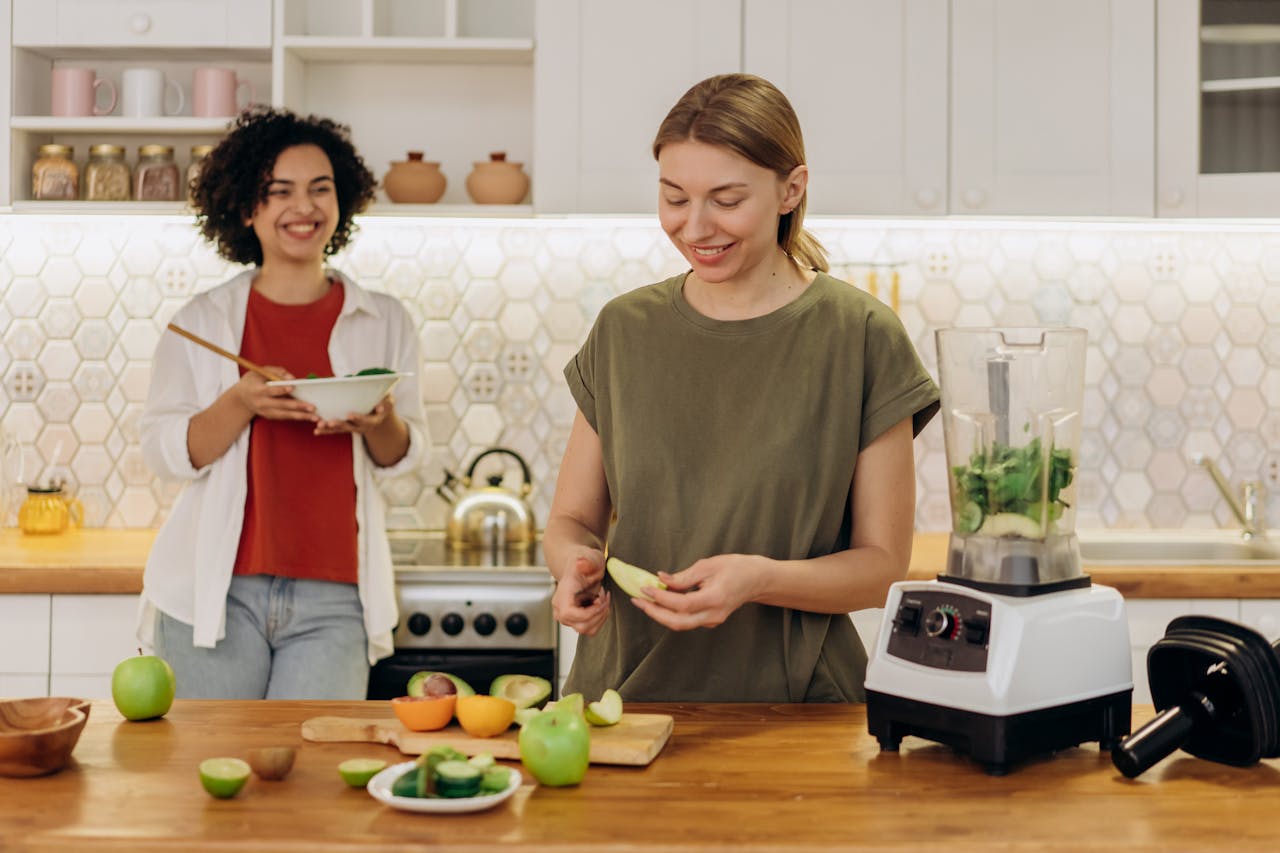When it comes to the evolution of cooking, the kitchen has always been a focal point. Over the years, the premium design of kitchens has grown to incorporate not only aesthetics but also practicality and functionality. The most current trend is the integration of smart technology into kitchen appliances to streamline the cooking process.
Google Scholar provides a wealth of information on how technology is influencing the kitchen environment. An analysis of this data gives us an insight into how smart kitchens are changing the daily cooking routines in the UK. Let’s delve into the details.
Also to discover : What are the pros and cons of open shelving in a UK kitchen?
The Emergence of Smart Kitchen Appliances
The rise in smart kitchen appliances is not a sudden phenomenon. The integration of technology into household items has been gradual, spurred on by the desire for efficiency and convenience. And it’s not just about having an appliance that can do more; it’s also about appliances that use energy more efficiently, making them more sustainable.
Many appliances in today’s smart kitchens are designed to seamlessly fit into the existing space, often with dual functionality to reduce clutter. For instance, a refrigerator that also serves as a smart hub for your kitchen, or a stove that can be controlled remotely via an app.
Topic to read : How to create an eco-friendly kitchen with minimal waste?
These appliances are designed to learn from users’ cooking habits and preferences, enabling them to provide personalised assistance. For example, your smart oven could suggest the optimal temperature and cooking time for a particular dish based on your past cooking experiences.
The Impact of Smart Kitchens on Daily Cooking Routines
When examining the impact of smart kitchens on daily cooking routines, a significant change is evident. With the assistance of smart appliances, cooking has become a more streamlined and efficient process.
Many smart appliances are integrated with voice assistants such as Google Assistant or Amazon’s Alexa. This allows you to control your appliances hands-free, which is particularly useful when you’re busy with other tasks in the kitchen. You can ask your voice assistant to preheat the oven, check the time left on the microwave, or even read out a recipe while you assemble the ingredients.
Additionally, smart appliances often come with their own apps that provide step-by-step cooking instructions, nutritional information, and even shopping lists. This not only makes the cooking process easier but also encourages healthier eating habits.
The Statistics Behind the Evolution of Kitchens
The figures and statistics behind the rise of smart kitchens are impressive. According to reports, the global smart kitchen appliances market size was valued at $5.3 billion in 2020 and is projected to reach $12.5 billion by 2027.
In the UK, the popularity of integrated smart kitchens is also on the rise. A survey conducted by Ideal Home reported that 35% of homeowners are incorporating smart technology into their kitchens, with this figure set to increase as more people recognise the benefits these appliances offer.
Not only are these numbers indicative of the current trend, but they also point to the future of kitchens. As more people embrace smart technology in their homes, we can expect to see an even greater push towards smart kitchens.
The Role of Energy Efficiency and Sustainability
In the era of climate change, energy efficiency and sustainability are not just buzzwords but essential considerations for any household. Smart kitchen appliances are designed with these factors in mind.
Many smart appliances are Energy Star certified, meaning they meet stringent energy efficiency guidelines set by the U.S. Environmental Protection Agency. This translates to lower energy consumption, which not only saves money but also reduces your carbon footprint.
In addition to energy efficiency, smart appliances also contribute to reducing food waste. For example, smart refrigerators can monitor the expiry dates of your food items and send you reminders before they go bad.
The Future of Smart Kitchens
While we’re already seeing the impact of smart kitchens on daily cooking routines, the future holds even more potential. With advancements in technology, we can expect to see even more innovative features integrated into our kitchen appliances.
From AI-powered cooking assistants that can whip up a meal from the ingredients in your fridge, to kitchen counters that can charge your devices wirelessly, the possibilities are endless.
What’s clear is that smart kitchens are more than just a passing trend. They represent a shift in how we approach cooking and food, making the process more efficient, enjoyable, and sustainable. And as technology continues to advance, we can only expect the impact of smart kitchens on our daily cooking routines to deepen.
The Advantages of Smart Kitchens for Older Adults
Smart kitchens, with their advanced technology, are particularly beneficial for older adults. These innovative appliances make it easier for them to continue cooking independently, even as they age. In the United Kingdom, this is a significant focus, with an aging population that values its autonomy.
The advantages are plentiful. Voice-controlled appliances mean that they can interact with their kitchen even if mobility is an issue. Items such as smart fridges can remind them when food is about to expire, minimising waste and ensuring they are eating fresh, nutritious meals.
Advanced safety features are another major benefit of smart kitchens. Many appliances have auto shut-off features, reducing the risk of accidents. For example, smart stoves can be programmed to turn off after a certain amount of time, which is a significant safety advantage for older adults who might forget to turn off the stove.
According to a study retrieved from PubMed Crossref, smart kitchens can even improve the mental well-being of older adults. The ability to continue cooking independently can boost their self-esteem and contribute to a sense of achievement.
The Role of Retailers in Promoting Smart Kitchens
Smart kitchens are not solely the result of advancements in technology. Retailers of major household appliances also play a significant role in promoting these innovations. In Great Britain, appliances retail stores are incorporating more smart kitchen designs into their showrooms.
Retailers educate consumers about the benefits of smart appliances, showcasing how they can simplify and enhance their cooking routines. Many offer demonstrations of these appliances in action to highlight their practicality. According to a report from Premium Statistic Global, this has led to an increase in the sales of smart kitchen appliances.
In order to cater to a wide range of consumers, retailers are also offering various price points for smart appliances. This ensures that smart kitchens are accessible to a broad demographic, from those seeking luxury kitchen designs to those with more modest budgets.
Conclusion
It is evident, from the wealth of information available on Google Scholar, PubMed Crossref, and Basic Statistic reports, that smart kitchens are revolutionising daily cooking routines in the United Kingdom and around the globe. From energy efficient appliances to AI-powered cooking assistants, the kitchen of the future is here.
As technology continues to evolve, so too will the potential of smart kitchens. Greater emphasis on sustainability, increased convenience, and an enhanced cooking experience are just a few of the benefits that we can look forward to.
Whether it’s the busy professional who enjoys coming home to a warm meal prepared by a smart oven, or the older adult who values the autonomy afforded by voice-controlled appliances, the smart kitchen has something to offer everyone. A trend that was once just a vision of the future is now an integral part of our present, making our kitchens, and our lives, smarter.






